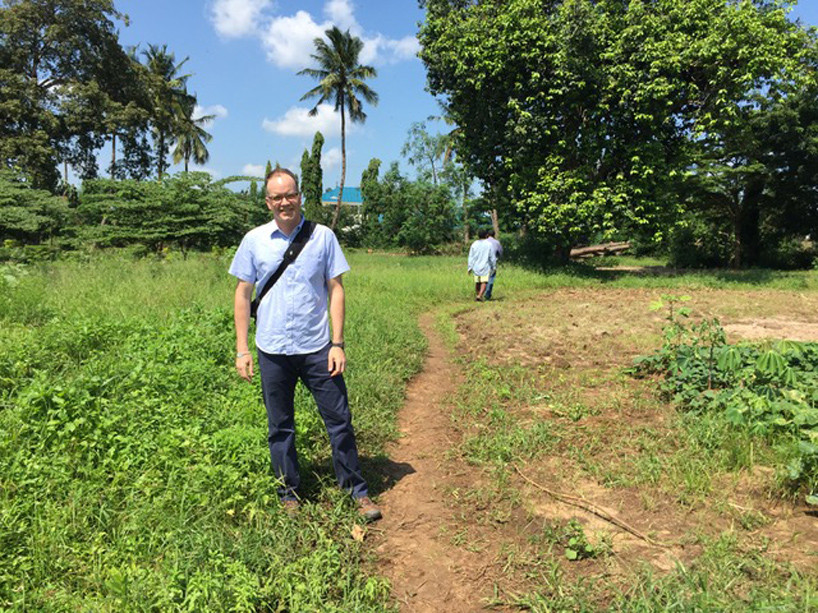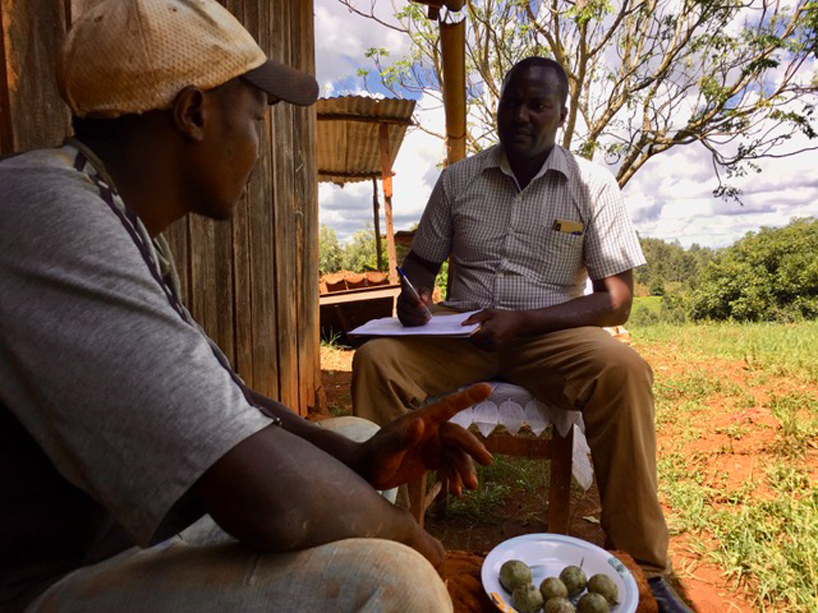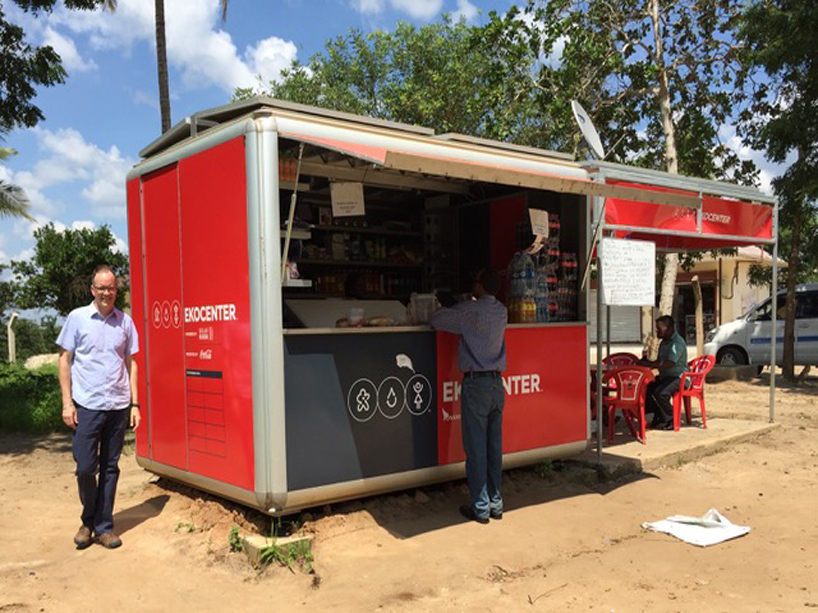How global conflict makes the climate crisis worse

Professor Christopher Gore has seen the impacts of climate change developing in East Africa for 20 years now. The latest global conflicts are only exacerbating already existing issues like food shortages. Image provided by Christopher Gore, onsight for urban food security research in Tanzania.
As the war in Ukraine rages on, and as other conflict flashpoints continue to develop (external link) around the world, large global powers have ceased working together to address the greatest threat to the planet: climate change.
Some countries may even take steps backward in their climate policy to manage the challenges posed by the war. As Germany faces down an energy shortage, it has said that it may rely more heavily on coal.
Professor Christopher Gore, Department of Politics & Public Administration, in the Faculty of Arts, conducts research in East Africa on global environmental governance; urban and environmental policymaking and administration; and food security and infrastructure provision. He says the impacts of the war are also being felt in regions that are already managing food security challenges that are now growing worse.
“We tend to talk about climate change as a threat multiplier,” he says. “The conflict itself doesn't necessarily exacerbate climate change but it does exacerbate the capacity to respond to climate change and existing challenges posed by climate.”
Ukraine war: food shortages, energy crisis
Over the last 20 years, Gore has studied the access to and the provision of energy and food, both in urban and rural systems.
“In the south of Africa, there’s a reliance on the import of fuel and food,” he says. “Ukraine and Russia jointly provide about 25 per cent of the world food wheat supply. Many smaller countries that don't have their own capacity to produce are reliant on their grain and are now feeling the shortage.” About 30 percent of Africa’s wheat supply is from Russia and Ukraine.
In Canada, we’ve experienced some of the impacts of the war and its sanctions: gas and food price increases, as well as an inflationary hike. But in Kenya, where Gore was in June 2022 for research, he saw the price of some everyday household food staples double in just one week.

Daniel Ndegwa, Christopher Gore’s research collaborator, interviewing farmers in Muranga County. Farmers are struggling to transport their goods with rising costs of fuel. Photo courtesy of Christopher Gore
“Inflation is having a direct impact on fuel prices and transport costs, which ultimately impacts the final price of food,” he says. “Food insecurity increases as a result. The timing of the events in Ukraine, combined with a very serious drought, which also took place in Europe this summer, has meant millions of people in eastern Africa are going through food shortages.”
War and conflict as climate offenders
The war in Ukraine isn’t the first threat to climate action around the globe. Both active war and the preparation for it necessitate a great deal of fossil fuel usage.
Since the invasion of Afghanistan and 2017, it is estimated that the U.S. military was responsible for emitting 1,212 million metric tonnes of greenhouse gases (external link) , which is equal to the annual emissions of 257 million cars and more than many industrialized countries. The Department of Defense is the world's single largest institutional consumer of petroleum and the U.S.’s single largest consumer of energy.If the U.S. military were a country, it would have the 47th highest emissions of greenhouse gases total worldwide.
But the war in Ukraine, and other global tensions, like over Taiwan, are harming advances in global climate action, says Gore. “The global attention to climate change negotiations, including getting new agreements on further actions, are being severely hindered by conflict,” he says.
“The tendency is to look at China and the U.S. as leads on international negotiations. But if they're unwilling to speak or meet as a result of their positions around Ukraine or Taiwan, then we will see a severe slowdown in progress,” says Gore. “It doesn't mean that other countries won't continue to participate, but the big drivers of action are going to be absent and there will be a lack of coordination in terms of the implementation of global solutions. And everyone feels that we're already far behind where we need to be so this is just further undermining progress.”
What’s ahead for climate policy
The impact of the war has been profound with respect to oil and gas development. And that has Gore concerned about the future potential of climate commitments. “There may be a continued reliance on fossil fuel going forward. Countries are being forced to quickly figure out how they're going to access energy sources other than what they've principally relied on.”

Christopher Gore in Tanzania on a project examining the sustainable provision of electricity.
We’re seeing now that countries are asking themselves how they're going to continue to engage in the global sphere around climate action, and how they will respond to impending energy shortages. Countries could move in multiple directions.
“We could have an outcome where we see a delay in the closure of fossil fuel energy plants, or a turn to other fossil fuel energy sources because of the dependence on oil and gas from Russia, or we may actually see a stronger push for renewables owing to the fact that countries need to diversify their energy sources.
“Many African countries attempted to do this well prior to the war in Ukraine, by diversifying the number of energy generation sources they have and committing to net zero emissions with energy production, even though they still have very low levels of access to electricity.”
The question, says Gore, is whether the resources are there to help respond to and support the individuals whose livelihoods depend so much on land resources that are being impacted by climate change. “Does the global community actually care enough to support communities and countries grappling with climate impacts?” he says. ‘I've seen climate change impacts and flooding in East Africa for 20 years. The real question is whether or not these problems are going to be taken seriously.”
One thing is clear: this conflict has brought into focus the need to better track military emissions and the need for nations to diversify energy supply as we shift to greener solutions. Gore says: “It often takes crises or emergencies to reevaluate what's being done nationally and what's required to be done internationally to respond.”